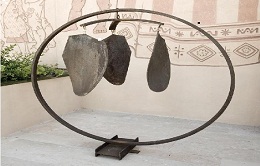Xth Conference of the Association of British and Irish Lusitanists
Read moreSeminar Series 2015-2016
| Semester 1 | |
| Thursday 3rd September | Professor Mario Santana (University of Chicago) “Screen History: Television, Memory, and the Nostalgia of National Community” |
| Thursday 10th September | Mexican Sculptor Sebastian at National Sculpture Factory |
| Tuesday 22nd September | Esmeralda Broullon (University of Cadiz) “Mobilidad diaspórica y desterritorialización en las obras de Enrique Gabriel y Julio Llamazares” |
| Friday 25th September | Juan Carlos Bayo (Universidad Complutense de Madrid) "Some considerations on the versification of the Cantar de Mio Cid" |
| 1st - 2nd October | Poetry and translation workshop with Juan Carlos Mestre |
| Monday 5th October | Isla expandido writer’s event with Basque writer Arantxa Urretabizkaia |
| Friday 9th October | Queralt Solé (University of Barcelona) “Condenadas y fusiladas. Las mujeres y la pena de muerte en la represión franquista”” |
| 15-16 October | Poetry reading and translation workshop with Lorna Shaughnessy |
| Friday 23rd October | Manuel Pérez Saiz (University of Cantabria), “La década prodigiosa escribe novela” |
| Friday 27th November | Alberto Rodriguez Lifante “La dimensión afectiva en Adquisición de Segundas Lenguas. La motivación y las actitudes en ELE” |
| Semester 2 | |
| Friday 15th January | Professor Claire Taylor (University of Liverpool) Digital Media and Literary Genres: Tracing a Hispanic Heritage |
| Friday 29th January | Antonio Rojas Castro (Universitat Pompeu Fabra, Barcelona) A Digital Edition of Góngora’s Soledades |
| Friday 5th February | Katerina Garcia (Trinity College Dublin) Seminar and Recital on Sephardic Song |
| Friday 19th February | Ana Claudia Surian da Silva (University College London) on Brazil in Translation |
| Friday 4th March | Mónica Jato (University of Birmingham): “Cultural translations of Mexico by Spanish Republican exiles: Prosthetic landscapes” |
| Friday 11th March | Amit Thakkar (University of Lancaster); Fiona Clancy (UCC) Colloquium on Argentine and Chilean Cinema |
| Friday 15th April | MA Presentations |
| Friday 22nd April | PHD Research Presentations: Cian Warfield and Yairen Jérez |
| Friday 29th April | Professor Colin Thompson – 'Sex, power and politics: Fray Luis de Leon's Profecia del Tajo' |
Seminar Series 2013-14
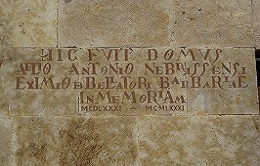
The full programme for this year's Seminar Series is available to download here: Seminar Series 2013 - 14 leaflet.
Seminars are normally held at 4pm in O'Rahilly Building (ORB) 1.24 unless otherwise indicated
Friday 8th November, 5pm
Speaker: Cara Levey (UCC)
"If there's no justice, escraches continue": Collective Memory and the Struggles for Justice in Post-dictatorship Argentina
Since the mid-1990s, Argentina has experienced an upsurge in the mobilisation of civil society, notably human rights, relatives’ and survivors’ organisations who have called for perpetrators of human rights violations committed during the most recent dictatorship (1976-1983) to stand trial, and undertaken many projects related to both truth-seeking and commemoration. It is in this context in which I examine the struggle of H.I.J.O.S (Sons and Daughters for Identity and Justice against Forgetting and Silence) - a group made up of children of Argentina's disappeared - who have, since 1995, employed the "escrache" to contest the impunity characteristic of post-dictatorship Argentina. "Escraches" are somewhat controversial acts of public shaming during which 300 to 2,000 people invade neighbourhoods near to the homes and workplaces of "represores" (perpetrators of dictatorship-era crimes), to expose their identities, challenge their anonymity and publicise the crimes of which they stand accused in order to produce moral and social condemnation.
Friday 25th October
Speaker: John O'Neill (King’s College, London)
"The Digital Edition of Cervantes' La entretenida: A New Approach to Translating, Performing and Editing Golden Age Theatre"
John O’Neill current research focus is on Cervantes’ work as a playwright with special reference to La entretenida. His translation of Cervantes’s entremes El viejo celoso ( The Jealous Old Man) was performed at the Edinburgh Festival in 2005, and he produced and directed his own translation of La entretenida (The Diversion), the first into English, at Kings College in May 2007. The digital edition of the play was the result of collaboration with a team from the Department of Digital Humanities led by Paul Spence. It forms part of a completed doctoral research project entitled 'Cervantes’s La entretenida: Translation, Performance and a Digital Edition', carried out under the supervision of Professors Catherine Boyle and Julian Weiss and nested within Out of the Wings, a major new resource for Spanish and Spanish-American theatre in translation, funded by the Arts and Humanities Research Council. The research involved translation, theatre practice and scholarship within the fields of textual criticism, bibliography and digital humanities.
Friday 18th October
Margaret Jull Costa
"Becoming a Literary Translator"
Margaret Jull Costa has nearly thirty years of experience as a literary translator, having translated novels and short stories by renowned international writers such as Eça de Queiroz, Fernando Pessoa, José Saramago, Javier Marías and Bernardo Atxaga. Her most recent award was the 2012 Calouste Gulbenkian Translation Prize for Teolinda Gersão’s The Word Tree, for which she was also runner-up with António Lobo Antunes’ The Land at the End of the World (Os Cus de Judas). In 2013 she was invited to become a Fellow of the Royal Society of Literature.
In the morning, she has been kind enough to offer a translation workshop for students on the MA in Translation Studies at UCC, from 11am to 1pm in ORB 2.03. Please get in touch with the Department if you would be interested in attending.
This event is supported by the Portuguese Embassy in Dublin and is fully financed by the Instituto Camões.
Friday 27th September
Laura Lonsdale (Queen's College, Oxford University)
"Bilingual Narratives of the Spanish-Speaking World"
What is a bilingual narrative? Who is the implied reader of the bilingual narrative? What challenges does it present to the reader and to what extent does the author enhance or diminish those challenges? How does the bilingual narrative position itself in relation to other texts? This paper will look at a range of 20th and 21st century narratives in which bilingualism is not just a theme, but is rather woven into the fabric of the text. Touching on texts by José María Arguedas, Ernest Hemingway, Juan Goytisolo, and Junot Díaz, among others, it will also look closely at the use of language and intertext in Antonio Muñoz Molina’s Carlota Fainberg.
Seminar Series 2012-13
|
The full programme for this year's Seminar Series is available to download here: Seminar Series 2012 - 13 Seminars are normally held at 4pm in O'Rahilly Building (ORB) 1.24 unless otherwise indicated Wednesday April 10th: 8pm - West Wing 9 Helena Blejerman "Living Abroad', or, 'Emotion in the Mother Tongue'" When living far away from our homeland, some words provoke strong emotions of nostalgia, affection or closeness. Using psychological, philosophical and semantic concepts, this talk will focus on maternal language as and when spoken from abroad. Inspired by the project, "Our Language Garden", a collaborative radio project (Radio UNAM and BBC Sheffield) in which a series of Mexican and British guests brought one word and a personal story linked to that word, the objective of the talk is to reflect on the emotional quality of words in the native tongue when living abroad, and also to reveal the possibilities of their use through technologies like "skype". With a particular interest in exploring notions of home and distance, this talk will assess the way in which certain words trigger strong feelings of belonging, closing the emotional gap between the person abroad and their homeland. Helen Blejerman will reveal statistics, ask the audience questions and perhaps, if memory permits, tell stories. Thursday 14th: 2pm - Cork City Library, Grand Parade Ilan Stavans (Amherst College, Massachusetts) "One Hundred Years of Solitude: The 'Best Novel Ever Written'" Ilan Stavans is Lewis-Sebring Professor in Latin-American and Latino culture at Amherst College, Massachusetts. He has worked on a wide range of aspects of contemporary Latin-American and Latino cultural studies, including Borges, Garía Márquez, Rubén Darío, Pablo Neruda and Octavio Paz; Mexican and Latino popular culture; the sociolinguistic study of Spanglish; translations, translation and trans-languaging. As well as a wide range of scholarly studies, editions and critical conversations, he has published anthologies, translations, memoirs, fictional works, and more popular pieces, including a controversial version of the opening chapter of Don Quixote in Spanglish (2002) and Latino U.S.A: A Cartoon History (2000). His scholarly publications include The Hispanic Condition (1995), On Borrowed Words: A Memoir of Language (2001) Spanglish: The Making of a New American Language (2003), A Critic's Journey (2009) and The Norton Anthology of Latino Literature (2010) Friday 15th: 4pm - ORB 1.56 "The Sounds of Spanglish" Spanish, present on the continent of America since the fifteenth century, when Iberian explorers sought to colonize territories in what are now Florida, New Mexico, Texas, and California, has become ubiquitous in the last few decades. With the release of the census figures in 2000, Latino America was anointed the future driving force of American culture. The emergence of Spanglish as a form of communication is one of the more influential markers of an America gone Latino. But Spanish north of the Rio Grande has not spread in its pure Iberian form. On the contrary, a signature of the brewing "Latin Fever" that has swept the United States since the mid-1980s is the astonishing creative linguistic amalgam of tongues used by people of Hispanic descent, not only in major cities but in rural areas as well -- neither Spanish nor English, but a hybrid, known only as Spanglish. Friday 1st March - ORB 1.56 and Cork City Library, Grand Parade Iberia in Translation Symposium This symposium will provide a discussion of different aspects of literary translation in the Iberian context followed by multilingual poetry readings by Basque, Catalan and Galician poets. A full schedule may be found here. Friday 22nd February - 4.15 p.m. - ORB 1.24 Philip Johnston (University College Dublin) 'Quod elixum est ne assato: Antonio Machado and the Spanish Golden Age' It is a truth not universally acknowledged that the poet Antonio Machado (1875-1939) by and large despised the literature and the entire aesthetic of the Spanish Golden Age. This paper will trace the development of this very negative reaction in his prose and, indeed, in his poetry. Machado’s criticisms of certain Golden Age writers are expressed openly enough in a work such as Los complementarios (his 1912- 1926 private notebook), but, in terms of boisterous rejections, this is nothing compared to what he has to say in later writings when, for example, “ventriloquising” as Juan de Mairena, of whom it is observed that “En suma... no se chupa el dedo en su análisis del barroco español”, and who launches a scathing 7- point attack on the Spanish Baroque. Additionally, the paper will attempt to explain why Machado held such a poor opinion of the Baroque era, and, in doing so, will uncover some rather unpalatable truths about Machado himself. Friday 15th February Centre for Mexican Studies, UCC The Violent Border: Research Symposium
A full schedule may be found on the Centre for Mexican Studies site: Friday 1st February Dr Ross Woods from Victoria University of Wellington "Literary Maps as Literary Criticism: Reading Antonio Muñoz Molina's Los misterios de Madrid Cartographically" In recent years, literary historian Franco Moretti has used maps to propose a paradigm shift in literary studies that embraces the quantitative research methods favoured in the social sciences, leading to renewed interest in the fields of literary cartography and literary geography. Ultimately, Moretti’s approach produces a macro-history of the novel that traces patterns in the development of this genre across broad historical periods and geographical expanses. In this attempt to create an inclusive, non-canonical history of literature, however, the text itself becomes of secondary importance. In contrast, in this seminar I argue that literary cartography need not be relegated to totalizing concepts of the novel’s historical and geographical evolution. After a discussion of the prevailing tendencies in literary geography this seminar briefly considers one of Antonio Muñoz Molina’s lesser-known novels, Los misterios de Madrid, and explores how literary maps may be used to not only enhance, but also produce, a critical reading of a text. Friday 11th January: Dr Kirsty Hooper "Ríos, fontes, mares, océanos: Hydropoetics and the Galician Cultural Imagination" This paper takes the case of Atlantic Galicia as a starting point to reflect on the implications of turning the gaze of Iberian cultural history outward towards the ocean. Exploring the watery presence in a selection of both canonical and forgotten cultural texts in circulation during the nineteenth century, this paper asks how an oceanic perspective might contribute to the reorganization and revalidation of Galicia’s contested geopoetic imaginary in the context of the nineteenth-century expansion of global maritime connections. Friday 7th December: 3:30pm - ORB 1.45 María García- Liñeira from the University of Oxford "Galician, Overpopulated Language" ‘Language’, claims the Russian intellectual Mikhail Bakhtin, ‘is populated —overpopulated— with the intentions of others’. The combination of these (often contradictory) intentions Friday 30th November: Donna Alexander and Rafael Jaime (UCC) - Postgraduate Seminar Presentations on Border Writing/Border Mapping. Friday 23rd - Sunday 25th November: Golden Age Research Symposium The aim of the symposium is to bring together researchers whose work concerns the literature, history and visual arts of the Spanish Golden Age (1474-1681). Friday 16th Nov: Dr M. Cinta Ramblado-Minero from the University of Limerick "Women, Memory and Atrocity in the Hispanic World" In order to do this, I will offer a brief overview of the different ways in which women re-interpret, represent and re-codify their own experiences of conflict, repression and political violence in two contexts: Spain and the Southern Cone, illustrating this by means of examples from different cultural media. My main argument is that the dynamics of gendered memory are essential in order to achieve a fuller understanding of the past, where the pillars of the traditional War Story are destabilised and women’s agency comes to the fore. Monday 5th Nov: Christopher Domínguez Michael "Contemporary Mexican Literature" Christopher Domínguez Michael (ciudad de México, 1962), historiador y ensayista, es uno de los más conocidos críticos literarios hispanoamericanos. Es autor de la Antología de la narrativa mexicana del siglo XX (1989 y 1991), La utopía de la hospitalidad (1993), La literatura mexicana del siglo XX (con José Luis Martínez, 1995), Tiros en el concierto. Literatura mexicana del siglo V (Premio Rousset Banda, 1997), Servidumbre y grandeza de la vida literaria (1998), Toda suerte de libros paganos (2001), La sabiduría sin promesa. Vidas y letras del siglo XX (Premio del Círculo de Críticos de Chile, 2009), El XIX en el XXI (2010), Para entender a Borges (2010) y Profetas del pasado. Quince voces sobre la historiografía de México (2011). Su Diccionario crítico de la literatura mexicana, 1955–2005 (2007, Critical Dictionary of Mexican Literature, 1955–2010, Dalkey Archive, Champaign/Dublin/London) fue traducido, actualizado, al inglés en 2012. En 1997 publicó una novela, William Pescador y en 2004 recibió el Premio Xavier Villaurrutia por Vida de fray Servando, biografía histórica. Es miembro del Sistema Nacional de Creadores de Arte desde 1993 y en 2006 recibió la beca Guggenheim. Actualmente es miembro del consejo editorial de Letras Libres y columnista cultural del periódico Reforma de la ciudad de México. Desde 2010 es investigador asociado de El Colegio de México. Friday 26th Oct: Professor Nuala Finnegan from University College Cork "Altars in the Desert: The Politics of Death in Narratives of the Ciudad Juárez femicides" Since 1993, when the murders of young girls on the streets of Ciudad Juárez first began to figure in headlines in both Mexico and further afield, a set of dynamic cultural responses has been generated. Literature, feature film, song, art, documentary, theatre, photography and digital materials from around the world have sought to capture the horrors of the crimes and to question the systems of power that sustain and nurture their continuance. This paper argues that many of the artistic responses to murders privilege two primary motifs through which to dramatize and perform the Juárez horrors: the altar (ofrenda, Day of the Dead) and the desert (as the situation, or place in which the horrors are located). Tracing the representational history of both elements in the Mexican context, I argue that these tropes are part of a dialectic about Mexican national identity that on the one hand seeks to contain the horrors of the killing in the border region historically conceived of as contaminated, insecure, lawless and barbaric and at the same time, subsume it into some kind of national narrative of mourning in the collective imagination.
Friday 19th Oct: Karen Bennet from the University of Lisbon "Translating Portuguese scholarly discourse: Is epistemicide inevitable?" Karen Bennett is a member of the Centre for English Studies, University of Lisbon, where she researches in the area of Translation Studies. She has a PhD in Translation Studies and is also a practising translator, specializing in academic texts from Portuguese and French into English. She currently teaches English for Academic Purposes and Scientific Communication at the University of Coimbra. Friday 5th Oct Henrique Costa de la Universidad de Vigo "La importancia de la Dialectología en los estudios de gallego" A partir de la realización del Atlas Lingüístico Galego (1973-1975) y de cientos de trabajos universitarios sobre Dialectología gallega en los últimos 30 años, hoy el conocimiento de esta realidad permite que los estudios dialectales sean un recurso constante y necesario para la estandarización léxica, para el estudio vivo de la historia de la lengua a través de la variación geolingüística, para la fijación onomástica y toponímica o para cualquier investigación en lingüística gallega. Posiblemente el gallego sea la lengua europea de la que poseemos un mejor conocimiento dialectal, aunque con lagunas en la lexicología dialectal y en el estudio de algunos dialectos exteriores. |
Seminar Series 2011-12
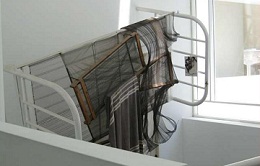
The full programme for this year's Seminar Series is available to download here: Research Seminars 2011-2012
Seminar Series 2010-11
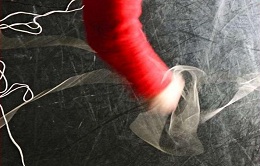
The full programme for this year's Seminar Series is available to download here: Seminar Series 2010-11
Conferences & Symposiums
5-7 September, 2013
Travel Writing and Narratives of Mobility
28-29 June, 2013
Rua da Saudade: Antonio Tabucchi between Italy and Portugal
22 March, 2013
Iberia in Translation symposium
21 February, 2013
23-25 November, 2012
Postgraduate Hispanic Studies Conference of Ireland and the UK
8-9 June, 2012
Juan Rulfo Symposium - 'Las Orillas de las Cosas: Reflections on the Work of Juan Rulfo'
29th March, 2012
Translation and Nation programme
17 February, 2012
New Perspectives on Galician Music
18 November, 2011
Transitions and Continuities in Chicana literature
24-25 June 2011
Invisible Borders: Rethinking Translation and Minority
31 March- 1 April, 2011
19-21 November, 2010
22 - 23 January 2010
Latin and Vernacular in Renaissance Iberia, IV: The Influence of Christian Latin Literature
15 - 16 April 2009
20 February 2009
21 - 23 November 2008
Sobre o tempo as palabras: a cultura galega contemporánea a exame
25 - 27 June 2008
18 - 19 January 2008
A Mexican New Wave?: Reflections on Contemporary Mexican Cinema Research Symposium
9 - 10 March 2007
A Workshop on Language Teaching
16 February 2007
24 - 26 November 2006
A Symposium on Galician and Portuguese Cultural Studies
21 March 2006
Symposium on Cervantes's 'Don Quixote'
15 December 2005
War Memories/Memory Wars - Violence in Contemporary Spain: An Inter-disciplinary Conference
16 - 17 September 2005
Irish Latin American Studies Second Annual Conference
18 June 2005
Spanish Theatre in Translation: Modern Voices, Modern Versions, Classic Texts
Colloquium - 18 February, 2005
Postgraduate Research Symposium in Hispanic Studies
19 - 20 November, 2004
Medieval and Early Modern Spain Research Symposium
12 March, 2004
Sex, Violence Nation: Reflections on Recent Mexican Narrative
22 January, 2004
Galician Colloquium - "Roots and Wings - The Poetry of Antón Avilés de Taramancos"
21 - 22 February, 2003
Annual Conference of the Association of Hispanists of Great Britain and Ireland
11 - 14 April, 2002
Round Table Discussion - 'Writing Truths: Journalism, Literature and the University'
30 November, 2001
4 May, 2001
31 October - 3 November, 2000
Carlos Fuentes on Culture and Identity in the 21st century
14 April, 2000
Spanish Poetry of the Golden Age: A Colloquium in honour of Patrick Gallagher
8 - 9 October, 1999
| Seminar Programme 2016-2017 | Department of Spanish, Portuguese and Latin American Studies, University College Cork |
|---|---|
| Semester 1 | |
| 9th September | María Mondéjar (Murcia) - "El neologismo: NEOMA (Diccionario de neologismos del español actual)" |
| 21st September | Livia Maria Reis (Universidade Federal Fluminense, Brazil) - "El mar sin fronteras: Haiti es aquí" |
| 23rd-24th September | Re-encountering the Canon: Literary Translation and Contemporary Iberia. Guest speakers include: Marta Marín-Domine (Canada), Peter Bush (UK), David Johnston (QUB) |
| 26th September | Lawrence Venuti (Temple University) - "Translation, Publishing, and World Literature: J.V. Foix’s Daybook 1918 and the Strangeness of Minority". Part of IRC New Foundations workshop on Translation and Activism, organised by Dr Caroline Williamson (UCC). |
| 30th September | Derek Dalton (Flinders University) - "A Criminologist's Encounter with ESMA and the'Dirty War': Reflections on Emptiness and Art" |
| 8th October | Erica Rodrigues Fontes (Universidade Federal do Piauí, Brazil) - "Boal in the Classroom: How to use his theatre techniques to teach literature" |
| 14th October | Miramar comes to Cork: A Symposium on the Legacy of Ramon Llull. Guest speaker: Catalan writer Francesc Serès. Round-table with Stephen Boyd, Cathal de Brugha, Aman Sondy and Stefan Reynolds |
| 19th October | ISLA extendido: Readings with Mónica Ríos (Chile) and Paula Varsarfsky (Argentina) |
| 18th November | Laurence White (Plymouth University) - "Rhythm and the word boundary problems: Cross-linguistic studies" |
| 25th-27th November | Golden Age Symposium, organised by Stephen Boyd |
| Semester 2 | |
| 3rd February | Fernanda Rabela (Instituto Federal de Educação, Ciência e Tecnologia Fluminense, Brazil): "Brazil and United States in a Time of War: the Good Neighborhood Policy and Inter-American Relations during World War Two" |
| 17th February | Ana Claudia Suriani (UCL) - "Fashion in translation from image to written clothing" |
| 3rd March | Postcolonial Approaches to the Portuguese-speaking world with Filipe Menezes (Maynooth) and Nélia Alexandre (Lisbon) |
| 31st March | MApproaches to Translation Corpora - Laura Linares and Ed McWhinney (PhD presentations, UCC) |
| 28th April | Symposium on Languages of Migration and Diaspora in Contemporary Spain, organised by Dr Seana Ryan |
Seminars 2017-18
Previous Semester
Autumn 2017
7th September Out of Africa Symposium, with Michael Ugarte, Brad Epps, Carlos Garrido Castellano, Juan Tomás and Bahía Mahmud Ahwa.
22nd September Carlos Garrido Castellano (AHGBI Visiting Fellow) – Contemporary Caribbean Art and Civic Engagement
29th September Eva Espasa (University of Vic, Catalonia) – Translating Multilingual Films in the 21st Century: The Trafilm Project
13th October Teresa Basile (Uni of La Plata) - La narrativa de HIJOS: la infancia bajo la dictadura argentina y las políticas de la memoria en la 2da generación
24th October Jennifer Arnold (University of Birmingham) – Yawning at Foreign Literature?: Reader Responses to Catalan Literature in Translation
10th November Galician Symposium – New Research on Galician Migrations
David Miranda Barreiro (Bangor) – Galician New York: Migration, Exile, Globalisation
Maria Alonso (Edinburgh) – Migrants, transmigrants and Postmigrants: the new Galician diaspora in an age of crisis
17th November Lisa Shaw (University of Liverpool) - Afro-Brazilian performance on Rio de Janeiro’s popular stages from the 1880s to the long 1920s
1st December Helena Buffery (UCC) – Cultural Trauma Narratives in/and Translation
-
ABIL Conference 2023
07 Sep 2023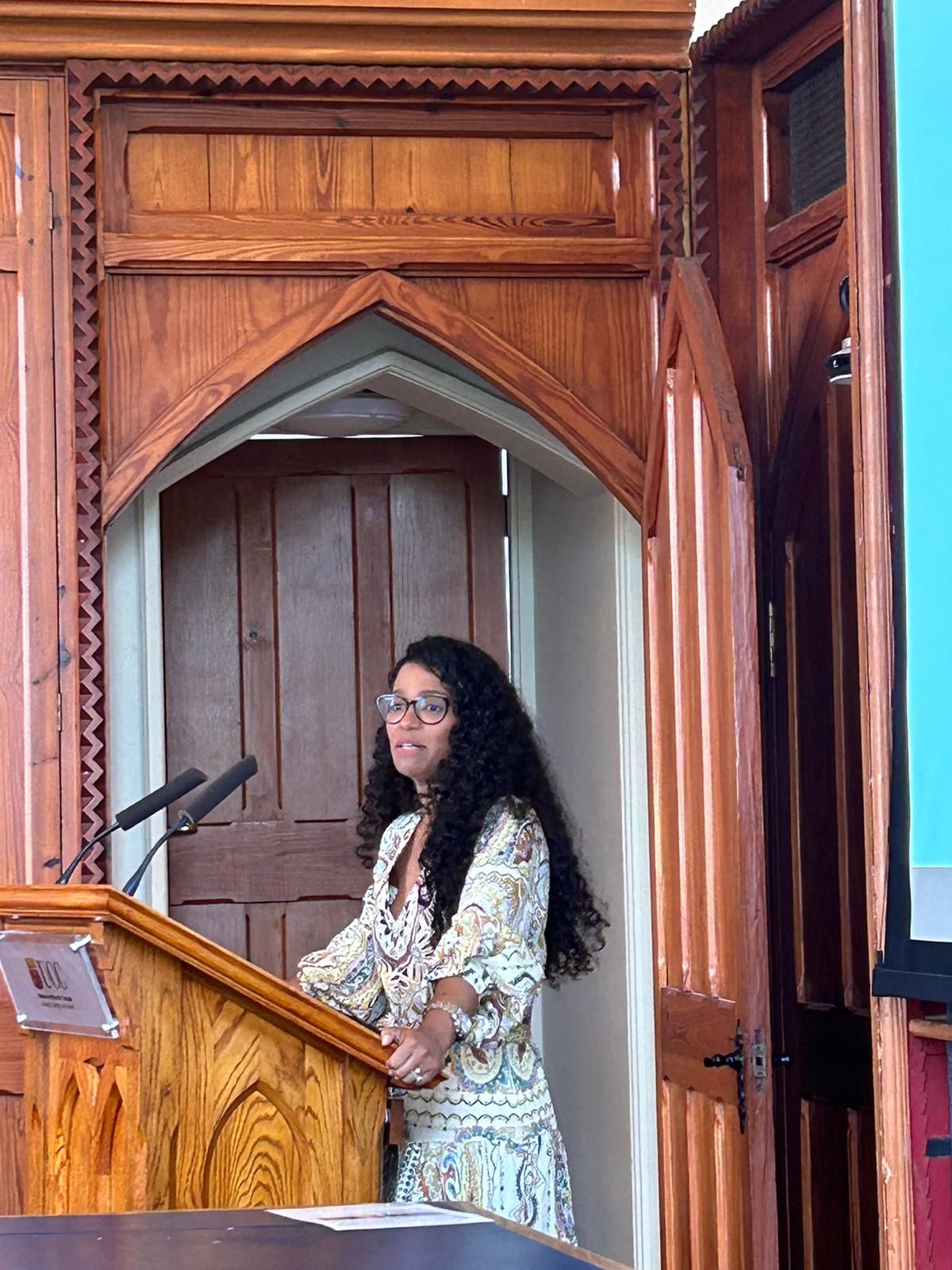
-
An Afternoon with Colectivo LASTESIS
13 Nov 2023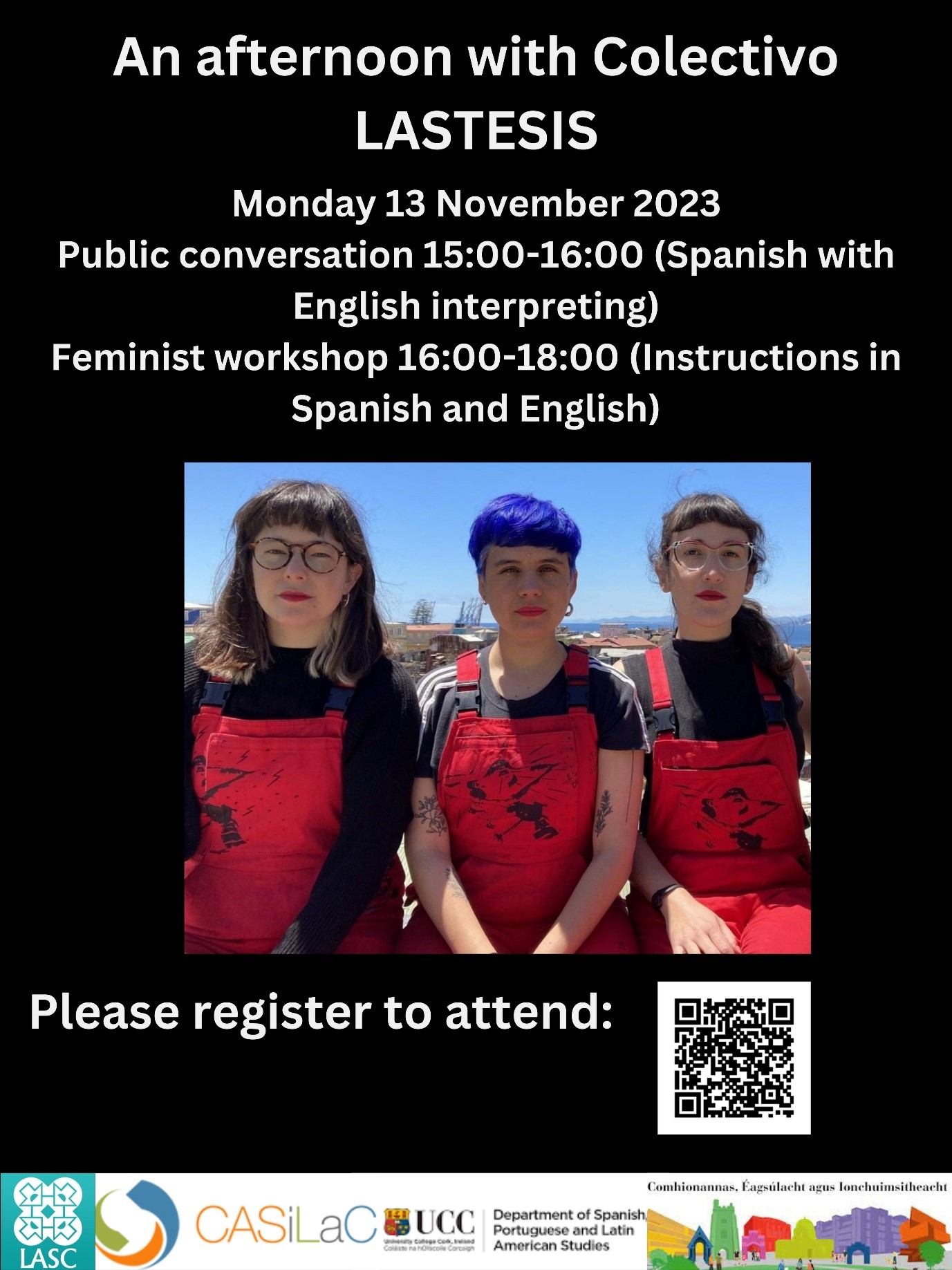
Chilean feminist collective, LASTESIS.
Read more
Department of Spanish, Portuguese and Latin American Studies
Contact us
First Floor - Block B East O'Rahilly Building University College Cork Ireland

